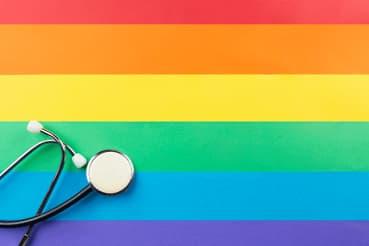Today is Transgender Day of Remembrance, a day to honor, mourn and celebrate trans, nonbinary and gender-nonconforming people who have died as a result of transphobia and violence. This day was established in 1999 by Gwendolyn Ann Smith, a trans writer and activist, to commemorate the memory of Rita Hester, a Black trans woman who was brutally murdered in her apartment in 1998. Her murder still remains unsolved.
Transgender Day of Remembrance is the largest, and often only, public acknowledgement of trans communities in the public eye. As a young person, I remember the day filling me with terror and coating me in a cold sweat. It served as a reminder that trans people were only remembered when we died in brutal murders or by suicide, and that coming out would mean subjecting myself to a life destined to end painfully and early.
Trans people though, deserve so much more than to be remembered. We deserve to live long lives filled with support, love and respect. We deserve to be kept alive.
Reminder that we exist
For people who only hear about trans folks once a year, Transgender Day of Remembrance is a reminder that we exist, but it also normalizes our deaths far more than it celebrates our lives and accomplishments.
Black and Latinx trans people, particularly transfeminine people, immigrants, gender-nonconforming folks and sex workers are by far the most likely to experience structural and interpersonal violence related to the ways their race and gender intersect. White transmasculine people, on the other hand, tend not to face the same degrees of systemic, state and interpersonal violence that enable the overwhelming brutality that Transgender Day of Remembrance highlights.
We must look past the implication that all trans people are subject to the same kinds of harm and understand that trans identities are interlocking and enabling factors that allow further harm to the most marginalized people among us. By understanding that violence against trans people is a systemic problem, and not solely tragedies enacted by individuals, we are able to see the depth of the brutality that trans people, particularly Black and Latinx transfeminine people, consistently face.
Engage and support
What many trans and other marginalized folks know is that these brutal deaths are the last acts of violence that, if given the power, are too reductive and can falsely make the story only about trans marginalization, which overlooks the complexities and beauty of those lost lives. Grieving on this day has a place, but let’s pair grief with accountability. How can we engage and support people harmed by violence that many of us do not face, and in fact, may be complicit in perpetuating? How do we lessen the burden of suffering of people who need to grieve the most — those who regularly face structural and interpersonal violence?
Rather than center Transgender Day of Remembrance on death and the harms of transphobia, I suggest that we mourn as well as commit to engage and center the most marginalized living among us. We must work in the same way this violence does — individually and systemically. I believe that as people working in caring professions, within a system for health, we all want to improve lives.
To protect trans lives that are in danger right now, let’s work to change the material and spiritual conditions that put transgender people in danger. Start by asking yourself what you are doing and saying to promote — or prevent — gender-inclusive language and spaces in your life. Then consider how you can lessen or help eliminate structural violence that marginalizes trans people. Below are some concrete ways to help center and lift up lives of trans folks:
- Represent: It may seem obvious that you use he/him or she/her pronouns, but putting your pronouns in your Zoom profile, email signature and LinkedIn bio signals awareness and normalizes inclusiveness.
- Participate: Donate new or “gently used” coats, winter wear, as well as nonperishable foods to the Rush medical student coat drive for the TaskForce Prevention & Community Services, the only LGBTQ resource and drop-in center on the West Side of Chicago. Drop-off will be available from 8 a.m. to 3 p.m. on Monday, Dec. 7, on the corner of South Wood and Harrison streets. Email samson_m_frendo@rush.edu for more information.
- Donate: Support the Chicago Community Bond Fund and the Transformative Justice Law Project, which provide monetary and legal support, respectively, to trans folks who are incarcerated while trying to survive (e.g., “walking while trans”) and cannot afford bail or legal representation in addition to other legal services.
- Cultivate inclusivity: Actively support and help craft gender-inclusive policies in schools, health care, housing and the workplace.
- Learn: Read books and articles written by trans and gender-nonconforming people.
- Connect: Listen to and experience the work of trans musicians and artists.




